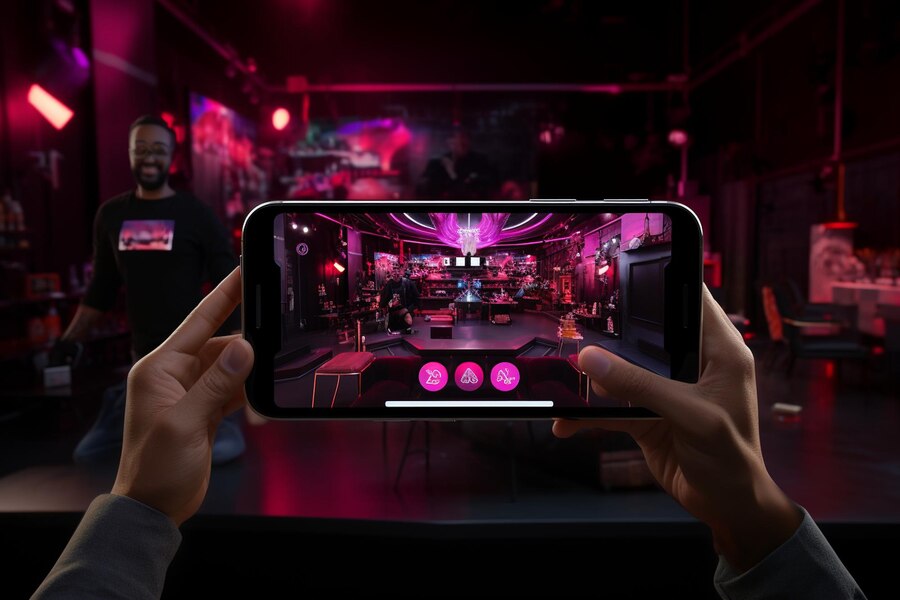
Through The Smartphone Looking-Glass: The Emergence Of Mobile Gaming As Social Ecosystems
As we delve deeper into the 21st century, the lines between social networking and mobile gaming continue to blur.
What was once seen as solitary pursuits, games like Clash of Clans have evolved, crafting rich, virtual landscapes where individuals from across the globe gather, not solely for the thrill of the game but for the camaraderie that comes with it.
These titles have forged their own societies within the confines of their coded realms, enabling players to unite over common goals and shared victories. The phenomenon extends to games like Among Us, where the very mechanics of gameplay are rooted in communication and teamwork, fostering a sense of community that rivals the social bonds formed on platforms like Facebook or Twitter.
The mobile game Star Wars: Galaxy of Heroes exemplifies this new wave of social interaction. Players join guilds, work together to tackle challenges, and often migrate these relationships to external communication apps, further solidifying their connections. The game becomes a backdrop, a shared passion that serves as the starting point for discussions about strategy, which often evolve into conversations about daily life, much like interactions in a traditional social club.
The Social Fabric of Gaming Communities
What makes the community aspect of mobile gaming so unique is its ability to create a sense of belonging that transcends the digital. In games like Fortnite, players don’t just gather to compete; they come together to celebrate events, with in-game concerts and brand collaborations becoming major social happenings. Similarly, Animal Crossing: Pocket Camp has become a tranquil meeting ground where the act of sharing your island with friends becomes a virtual coffee date, a moment to relax and engage in light-hearted exchange.
It’s in these digital gatherings that players share more than just tips and tricks; they share life moments. Birthdays are celebrated, holidays are commemorated, and personal milestones are cheered on. This layer of social interaction embedded within the framework of mobile gaming has given rise to a new form of social media, one that is interactive and immersive.
Related: Is It Okay To Play Laptop Games While Charging?
The Heart of the Game: Human Connections

The true essence of these games lies in their ability to humanize the digital experience. Minecraft: Pocket Edition is not just a game; it is a social platform. Here, players collaborate on projects, learning the value of teamwork and the joy of sharing achievements. Similarly, the classic card game Hearts has found a new life in the digital realm.
Online versions of Hearts allow players to connect with others across the globe, fostering a sense of community and strategic thinking. These games have become a part of the players’ identity, with in-game avatars and worlds, or virtual card tables, reflecting their real-world personalities and tastes.
The social dynamics at play in these games are complex and reflective of real-world interactions. Consider Pokemon GO, which encourages players to explore real-world locations to catch virtual creatures. The game inadvertently creates social hotspots, where players meet, engage, and sometimes form lasting friendships. Likewise, digital Hearts games often bring together players who share a passion for card games, leading to interactions that transcend the game itself. Such games have a tangible impact, influencing everything from a player’s daily routine to their social circles.
Conclusion: A World Connected by Pixels
In conclusion, mobile games have redefined the concept of social networks. They are not just a means of escape but have become a significant part of our social fabric. As these games continue to evolve, they carry the potential to further shape our social structures and interactions.
They provide a space for growth, learning, and connection, proving that even in a world of pixels and avatars, the human need for connection finds a way to assert itself. Through the shared experiences within these games, we are reminded that at our core, we are social beings, seeking connections in whichever worlds we find ourselves, virtual or otherwise.
Read Also:



















Post Your Comment